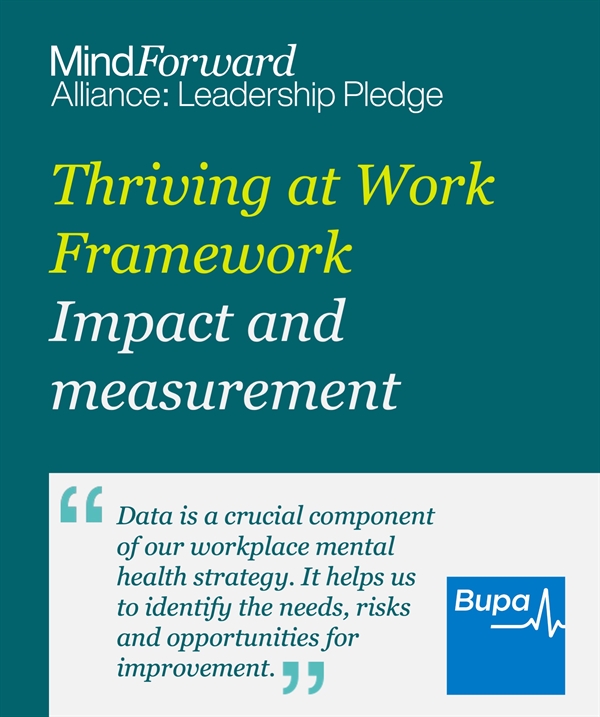Bupa is an international healthcare company organisation serving over 50 million customers worldwide and providing a range of services, including health insurance, clinics, dental centres, hospitals, aged care and digital health solutions.
Data is a crucial component of Bupa’s workplace mental health strategy. It helps to identify the needs, risks and opportunities for improvement and is essential for reporting against the business’ Enterprise Standard for Psychological Health & Safety.
The organisation collects a wide range of data to provide insights on employee experience, engagement, sickness issues including burnout, and psychosocial risks. Data is collected through regular and systematic processes, such as annual or biannual surveys, quarterly reports and monthly check-ins. Employees are also encouraged to share their feedback and suggestions through anonymous platforms and online forums, respecting privacy and consent at all times. Bupa also monitors take up of wellbeing benefits and medical insurance claims data to monitor mental health risks and themes.
There are differences in the types of data Bupa can collect between different markets. For instance, in some countries it is not legal to collect data around why people take time off work.
This could create a gap in Bupa’s understanding of the needs of the workforce, but this is mitigated by analysing different kinds of insights from across the business to identify commonalities and recurring themes.
Data is shared internally with all levels of the organisation, with the belief that transparency and communication are essential to create a culture of trust and accountability. Bupa wants to demonstrate to colleagues that they are listening and acting on the feedback they provide.
Bupa’s advice for organisations who are thinking about where to begin with a data-informed workplace mental wellbeing strategy is to start with a clear and specific question or problem that you want to solve or understand better. This will help to define your data needs and goals, and the methods and tools you will use to collect and analyse it.





